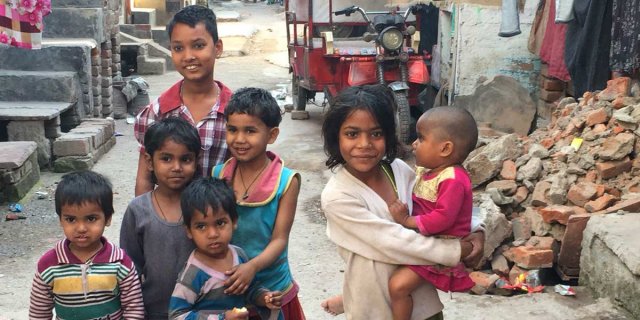
Over 20% of B’luru's households are in slums! Poverty persists despite economic growth
On International Day for the Eradication of Poverty, experts highlight growing slums, healthcare access issues & rising cost of living, underscoring the city's ongoing struggle against poverty
NT Bengaluru: The International Day for the Eradication of Poverty, observed annually on October 17, aims to raise awareness about global poverty and promote efforts to combat it. Despite being a rapidly growing metropolis and India’s tech hub, Bengaluru is not immune to this challenge. While the city showcases economic prosperity, significant disparities in income and living standards persist, leaving a considerable portion of the population struggling with poverty. According to the 2011 Census, the city’s poverty rate was 17.3 per cent. However, recent studies indicate that the figure may be higher due to the informal nature of much of the city’s economic activities. Rapid urbanisation and migration have led to an increase in the number of slums, as people flock to the city in search of better opportunities. A substantial segment of the city's poor population lives in overcrowded and often illegal slums lacking basic amenities like proper sanitation, electricity, and clean water. The growing cost of living has made affordable housing increasingly out of reach for many, pushing them to live in these informal settlements. According to the National Sample Survey Organisation (NSSO), nearly 20 per cent of households in Bengaluru reside in such conditions.
The lack of proper shelter and basic amenities exacerbates the poverty cycle, making it harder for residents to improve their circumstances. Additionally, healthcare access remains a significant challenge for Bengaluru’s low-income residents. Overburdened government hospitals often cannot provide adequate or timely treatment, resulting in preventable illnesses and deaths. For many, the high cost of private healthcare makes treatment inaccessible, further entrenching poverty. Dr Pushkarni Panchamukhi, Associate Dean at the School of Economics and Public Policy, RV University, Bengaluru, sheds light on the multidimensional poverty in the city. “Bengaluru boasts being the second least multidimensionally poor in Karnataka, with urban Bengaluru having 1.47 per cent and rural Bengaluru even lower at 0.99 per cent poor people,” she explained. The multidimensional poverty index considers factors such as health, education, living standards, and work. Dr Panchamukhi added, “The National Family Health Survey (NFHS-5) indicates that while the percentage of poor in urban Bengaluru has declined from 2.05 per cent to 1.47 per cent, the extent of deprivation in health, education, and living standards has increased from 41.06 per cent in 2015-16 to 45.68 per cent in 2019-21. This intensity is comparable to, and in some cases higher than, that of the poorest districts in Karnataka, such as Raichur or Yadgir.” She highlighted that while the number of poor people in urban Bengaluru may be low, their living conditions remain dire. “66.3 per cent of children between the ages of six months and five years in urban Bengaluru are anaemic, ranking the city among the top ten districts for child malnutrition,” she noted.
Interestingly, the intensity of deprivation is lower in rural Bengaluru at 36.71 per cent, raising questions about the contrasting outcomes between urban and rural areas. With a population of over 13.6 million and the second largest migrant population in India after Mumbai, Bengaluru struggles to manage the rise of the informal economy, where income security and working conditions are often poor. Many migrant workers and their families face difficulties accessing healthcare and education due to a lack of awareness or documentation. Poor infrastructure, including dilapidated public schools and primary healthcare centres, compounds the issue. Dr. Panchamukhi emphasised the need for action, noting, “The city faces significant challenges in improving the living conditions of its poor. While they may be few, their struggles matter and require urgent attention.”
 English daily published in Bengaluru & Doha
English daily published in Bengaluru & Doha






